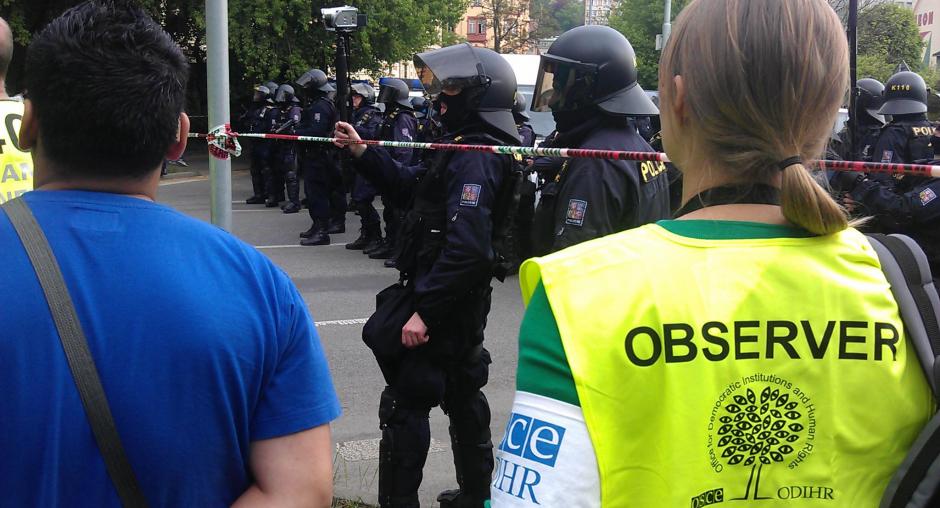What we do
Human rights
Respect for human rights and fundamental freedoms are key to the OSCE's comprehensive security concept. The OSCE monitors the human rights situation in its 57 participating States, all of which have recognized that human rights are the birthright of all human beings and are inalienable and guaranteed by law. Strengthening and promoting the protection of human rights across the OSCE region is therefore at the heart of the Organization’s work.
The OSCE Office for Democratic Institutions and Human Rights (ODIHR) provides participating States with advice and assistance, and supports individuals and civil society with targeted training and education. ODIHR covers a broad spectrum of issues, ranging from the fundamental freedoms of religion or belief, movement, assembly and association, to reporting on the use of the death penalty, monitoring trials, and preventing torture and other forms of ill-treatment.
A number of OSCE field operations dedicate efforts to human rights. Their work includes:
- Supporting the implementation of legislation protecting the rights of persons belonging to minorities;
- Working to eliminate discriminatory laws, policies and practices;
- Providing technical support to human rights bodies;
- Reviewing legislation to ensure compliance with OSCE commitments and international human rights standards;
- Analysing and advising on human rights compliance;
- Monitoring and helping strengthen executive, judicial, legislative and law enforcement institutions;
- Sharing best practices and supporting efforts to ensure international human rights standards are met;
- Supporting civil society organizations working on human rights;
- Training judges in line with national and international human rights best practices;
- Supporting probation services;
- Assisting in human rights-compliant legal and detention service reform;
- Training human rights advocacy groups;
- Focusing attention on the rights of communities, languages, education, returnees and repatriated persons, refugees and vulnerable persons;
- Promoting gender equality;
- Monitoring hate crimes and hate speech; and
- Preventing human trafficking and torture.

